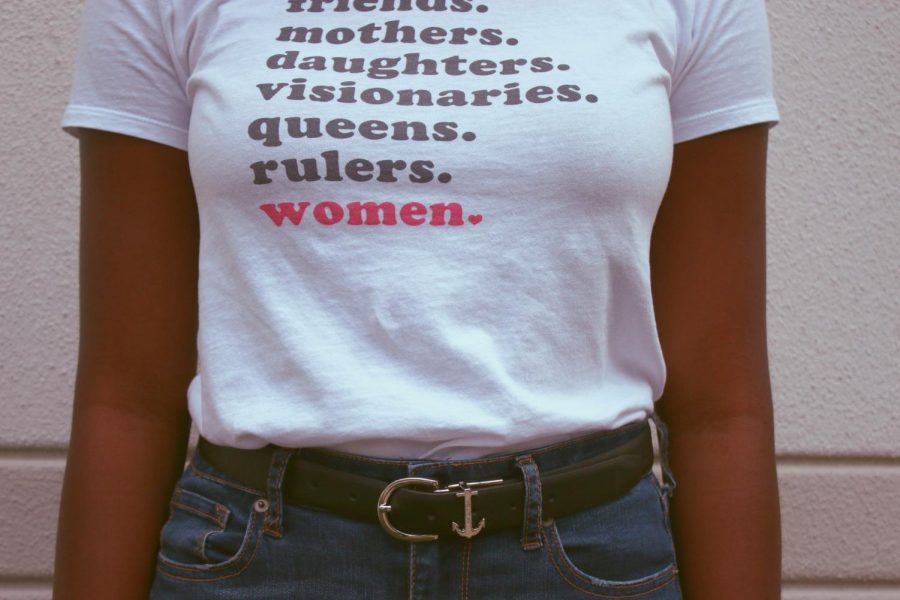The Fight for Equality
5 Feminist Heroes to Celebrate
On International Women’s Day, women come together to acknowledge their triumphs and struggles with gender inequality.
Women around the world, regardless of race, background, or sexuality, use this day to see how far we have come and continue to empower one another. International Women’s Day, at its core, focuses on the achievements of women throughout history.
While celebrations of this day were halted around the world due to the growing threat of COVID-19, here are five women you can celebrate while remaining socially distant at home.
1. Emmeline Pankhurst (1858- 1928):
Emmeline Pankhurst was a revolutionary women’s right activist. She is often credited with founding the UK Suffrage movement.
Pankhurst also helped form the Women’s Social and Political Union. Originally, the union was designed around the idea of peaceful protests. When that proved ineffective, she led a series of window-smashing campaigns and heckling. This led to her repeated arrest.
As World War I came about, Pankhurst turned her attention to helping the war effort. In the same year that women were granted the right to vote regardless of property ownership, she passed away.
2. Christine Jorgensen (1926-1989):
In a time where transgender people were largely ignored, there rose Christine Jorgensen. In 1952, she was the first person in the United States to undergo gender reassignment surgery.
As a teenager, she was convinced she was in the wrong body as she always felt more attracted to feminine things. She joined the military in hopes of fitting in more with the guys but still felt disconnected.
After extensive therapy, she underwent gender reassignment surgery and her story hit the headlines in America. Jorgensen used her newfound fame to become an advocate and fight for trans rights until her last breath.
3. Claudette Colvin (1939- ):
Before Rosa Parks, there was Claudette Colvin. At just fifteen, Colvin refused to give up her seat to a white woman after being motivated by what she had heard in school.
The bus driver ordered her to give up her seat to a young white woman, and she simply refused because she had paid her fare. The bus driver got the attention of some police officers who manhandled her off of the bus, arrested her, and threw her into an adult jail where she was held for a few hours. Her story only made the local news.
Since Claudette was also pregnant, and the NAACP did not think that a pregnant teenager would be a good face for the organization. Nearly ten months later, Rosa Parks made national headlines for doing the same thing. While her protest was less famous, it still helped push forward the Civil Rights Movement.
4. Sally Ride (1951-2012):
As the first American woman in space, Sally Ride experienced a lot of sexist questions and comments from the public. While NASA itself was trying to hire more women, the public, for some reason, could not get that a woman was in this field.
She often received questions about how space would harm her reproductive organs or how she would do her makeup while in space. With a degree in physics, astrophysics, and English, Ride was more than qualified for the job.
Her goal was not to be famous for anything; she just wanted to fly. However, she did use her fame to help encourage young girls to pursue their dreams, no matter the job.
5. Malala Yousfazai (1997- ):
Pakistani activist Malala Yousfazai has been a very vocal advocate for women’s education since she was eleven. She believes that every female has a right to get an education, which is a very unpopular opinion with the Taliban.
She uses press conferences and speeches to try to convince people that every woman deserves a right to an education, and she has received multiple death threats.
Yousafazai was only fourteen when a Taliban gunman shot her in the face to try to silence her. Little did they know that this would only boost her fame globally and give her a stronger platform for her cause. After her recovery, she continued to share her testimony to bring awareness to women’s rights issues.
At seventeen, she became the youngest person to receive a Nobel Peace Prize and has received numerous awards since then.
While a few paragraphs cannot describe everything each of these five women has done, it certainly is a start. The world is a lot nicer than it was back then, but that does not mean that these women’s struggles need to be forgotten.
We can still continue to fight to make the world a better place for future generations of women. That is the core of feminism. Without these brave women and many others fighting for their rights and against sexism, we would not be as privileged as we are today.

Hannah Alley is a sophomore at Delta State, and this is her first semester with “The Delta Statement.” She is going for a degree in Secondary English...



